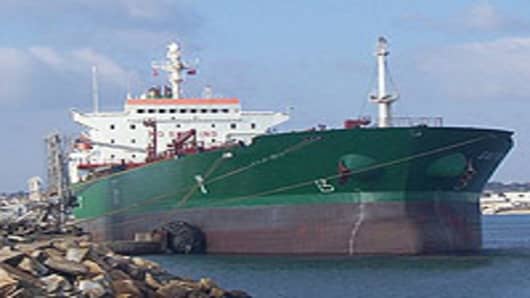A study from Harvard University concludes that the "real problems" of the international oil market aren't so much a matter of production and supply as "political decisions and geopolitical instability," which will define the international marketplace and US energysecurity in the years to come.
A good recent example is the U.S.-E.U. showdown with Iran over its civilian nuclear program. When crude oil prices settled above $100 per barrel during the first quarter of this year, because Iran was threatening to close the Strait of Hormuz — the conduit for about 20 percent of the world's oil — the consensus was that the price reflected a concern about something other than oil; after all there was no disruption in supply.
The Harvard study found that of all the major oil-producing countries in the world, only four — Iran, Mexico, Norway and the United Kingdom – show a long-term decline in production capacity by 2020.
The loss of production in Iran and Mexico, according to the report, is due largely to political factors. Mexico, for all intents and purposes, is a narco-state. With sanctions set to go into force against Iran in a matter of days, Tehran has already acknowledged oil exports were down by as much as 30 percent.
The Harvard study, by former Eni executive Leonardo Maugeri, found that gross global oil production from current sources could add another 49 million barrels per day to the markets by 2020 — twice the current level.
A significant portion of that production comes from North American tight-oil deposits, such oil found in shale formations. Oil from such sources in the U.S. will reach 720,000 barrels per day in 2012, which is around 12.5 percent of the nation’s domestic output, according to a recent Energy Information Administration report.
By 2020, says Maugeri, the United States will move to the No. 2 position behind Saudi Arabia. These North American crude oil volumes will lead to a "tectonic shift" in geopolitics as the Western Hemisphere passes the rest of the world in terms of the rate at which oil production increase.
So what's that mean for the U.S. market and the long-held national security policy that the need for a reliable supply of oil from the Middle East required ample military assets to defend it? Partisan debate is centered on right-wing leaders who are clamoring for more oil drilling and their left-orinted opponents who say much of that motivation comes from the pocketbooks of international oil companies.
Maugeri says North America could move toward "theoretical oil self-sufficiency" given current forecasts for oil production. Moving to the No. 2 position by 2020 is a significant step, suggesting that, at least in terms of raw numbers, the US economy will be insulated from the rest of the world.
That would be a political coup for lawmakers today pressing for more domestic drilling. But Maugeri states that "theoretical" self-sufficiency becomes "quasi" self-sufficiency when considering external factors.
In the United States, the Keystone XL oil pipelinefrom Canada is emblematic of US energy security. In Canada, however, a large part of that symbolism lies in the Northern Gateway, a pipeline meant for Asian exports.
If commercial factors won't protect US markets from foreign oil and there is a physical glut, Maugeri says "geopolitical and psychological factors" make the idea of self-sufficiency "irrelevant."
—This story originally appeared on Oilprice.com.


